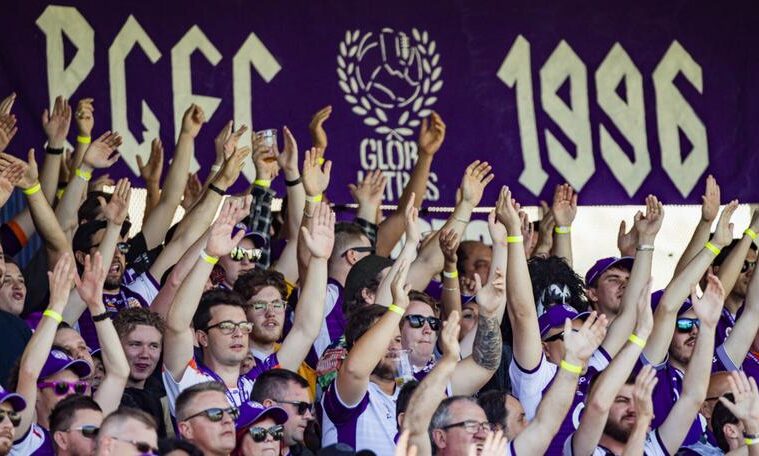Football Supporters Association Australia are the latest stakeholder seeking to carve a slice of influence in the Australian game, as an independent voice representing a wide cross-section of fans in the corridors of influence.
For many, the semblance of power held by Australian football fandom within the game was crushed on the morning of December 12, 2022, when the Australian Professional Leagues announced the sale of the A-League Grand Finals to Destination NSW for three years. The white-hot rage that ensued literally spilled from the terraces that weekend, at the December 17 Melbourne Derby.
Over six months on from establishment, the FSAA released a Members Update on June 1 outlining meetings with APL chair Danny Townsend, where an acknowledgement of broken trust and a potential Memorandum of Understanding between the bodies were among multiple agenda items.
‘The embers of the FSAA had been burning quietly in the background for some time, a belief there should be an independent body of football supporters that come together as an incorporated association’, FSAA Chairman Don Sutherland told Box2Box.
‘This gained ground around the time the decision to take the Grand Finals to Sydney was announced, and we all remember the catastrophic events at Aami Park in December, which ultimately brought this to fruition.
‘A series of advertisements, and calls for expressions of interest, went through social media in early 2023. We eventually formed a group for five-to-six weeks, before we started looking at the forming of office and general committee, and then a voting process took place thereafter.
Sutherland concedes even establishing what constitutes a ‘football fan’ is a challenge, let alone finding consensus among them. It’s only natural that the Association’s early membership tally of roughly 500 contains an overrepresentation of those active on ‘Sokkah Twitter’, given the ability to spread information to them instantaneously.
Spreading the net to represent the fifty-year ex-NSL-club committee member, fee-paying parent or passive A-League attendee will take longer to achieve, but with it will hopefully come the legitimacy required to be heard among the game’s administration. Recent dialogue with Football Australia indicates this may be brewing.
‘When we met with the APL and [PFA co-chair] Beau Busch, one of Busch’s comments was that football supporters and players should be at the heart of decision making within the code. One of our goals is to make sure we’re significantly recognised, such that we have a position at the table.
‘That’s an overarching goal – if we’re not being listened to, you might question the value of what we’re doing.. These [current] meetings are about understanding the roles we can play with these governing bodies, and about making sure we truly represent football supporters across Australia.’
Declaring representation over a disparate, democratic group is bold, and can put noses out of joint quickly. Sutherland himself considered the appropriateness of such a remit before committing his own involvement.
‘I saw three requests for expressions of interest come across my desk before I reached the point of thinking I could either sit back and be critical or, if I really love the game and want to contribute, roll up my sleeves and get involved.
‘I would encourage every fan to get on board the Association – but not for a second to think that means they shouldn’t be part of their own fan representative group, as they are critically important.
‘We don’t want just one voice that’s heard, although we are happy to be one independent voice not related to a club or governing body. The more the merrier, but if you’re not involved at any level of fan representation, here’s a chance to make a difference.’

